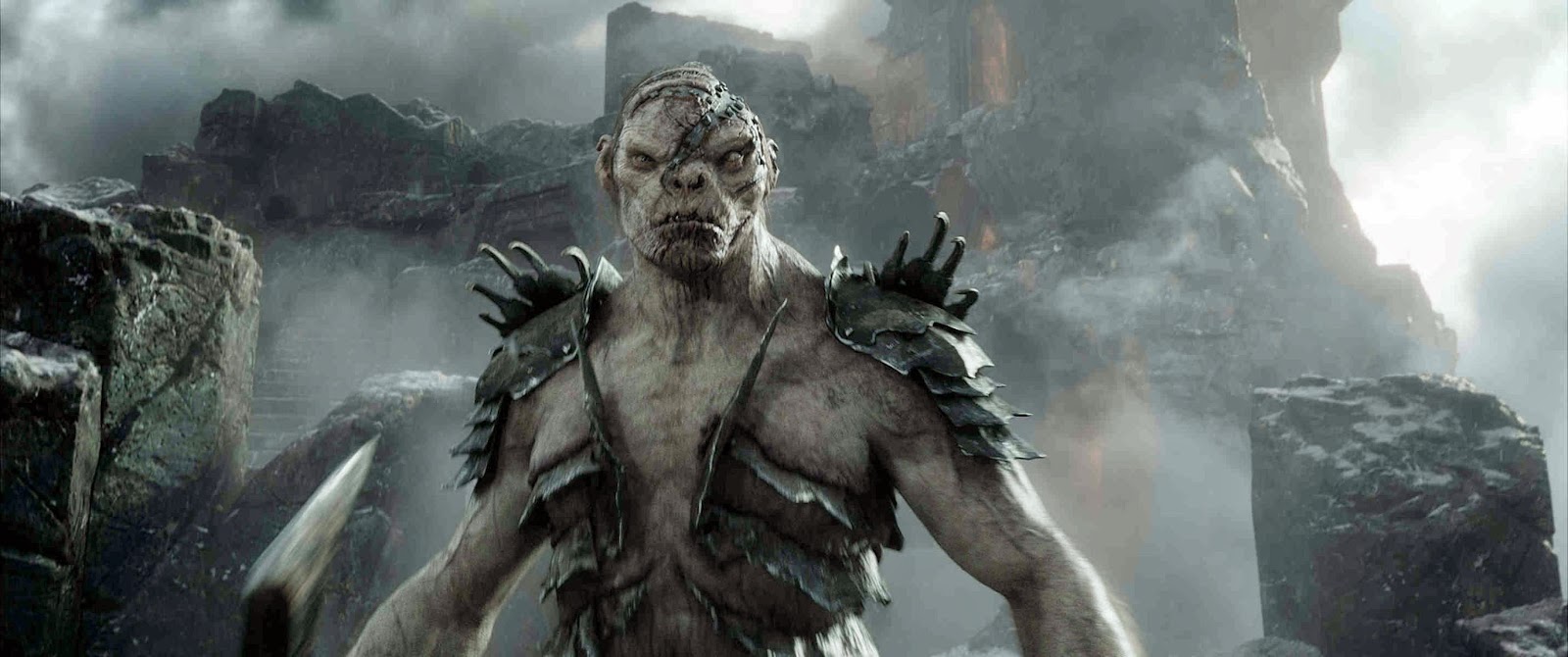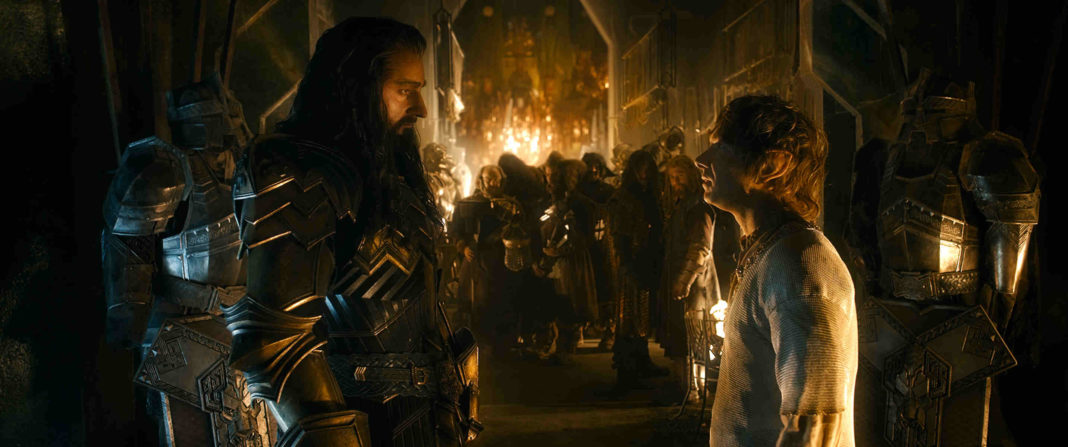
The Hobbit, or There and Back Again was first published in 1937, having emerged from the revered author, poet, university professor and philologist’s imagination as bedtime stories for his children. In the 17 years that followed, Tolkien continued to develop, expand and enrich the complex mythology of Middle-earth to produce its sprawling, apocalyptic conclusion, The Lord of the Rings. Collectively, the author’s towering modern myth has had a seismic impact on world culture, becoming among the best-selling novels ever written, and sparking the imaginations of generations of readers all over the world.
Among them was a teenaged Peter Jackson, who took his first dive into Middle-earth while traveling by train across his native New Zealand—but it wouldn’t be his last. As early as 1995, the filmmaker explored the idea of adapting The Hobbit for the screen, hoping to then move on to adapt The Lord of the Rings. Instead, Jackson ultimately reversed the journey that Tolkien himself had taken—telling the end of the story first with his landmark, Oscar-winning “The Lord of the Rings” Trilogy, then plunging back into the fully realized world he’d created to bring the mythology’s seminal origins to life with the same vast scale, technical mastery and emotional resonance in “The Hobbit” Trilogy.
To embody the iconic roles introduced in this earlier tale, the filmmakers assembled a core of gifted actors, including Martin Freeman as the Hobbit Bilbo Baggins, Richard Armitage as the Dwarf Lord Thorin Oakenshield, Luke Evans as Bard the Bowman, Evangeline Lilly as Silvan Elf Warrior Tauriel, Lee Pace as Elvenking Thranduil of the Woodland Realm, Billy Connolly as Dwarf General Dain Ironfoot of the Iron Hills, and Benedict Cumberbatch breathing life into the Trilogy’s iconic villains, the Dragon Smaug and the Dark Lord Sauron.
The new trilogy would also reunite the director with members of the celebrated cast of “The Lord of the Rings” films nearly a decade after their release, including Ian McKellen as the Wizard Gandalf the Grey; Cate Blanchett, Hugo Weaving and Orlando Bloom as High Elves Galadriel, Elrond and Legolas, respectively; Christopher Lee as the Wizard Saruman the White; Ian Holm reprising his role as the older Bilbo Baggins; and Andy Serkis returning to his memorable incarnation of Gollum in the first film, “The Hobbit: An Unexpected Journey,” as well as serving as second unit director for the entire Trilogy.
Together, Jackson, his close band of filmmaking collaborators and international ensemble cast embarked on a new adventure—plunging into a nine-month-long filmmaking journey across New Zealand to simultaneously create all three films, releasing the first film, “The Hobbit: An Unexpected Journey,” in 2012, and following a year later with “The Hobbit: The Desolation of Smaug.” This compelling cinematic journey now reaches its epic conclusion with the release of the third and final film, “The Hobbit: The Battle of the Five Armies.”

As Jackson prepares to sweep audiences back to Middle-earth one last time, he reflects that throughout his epic filmmaking odyssey through Middle-earth, his true north has always remained his passion for the artistic legacy of Tolkien and his own desire to see it brought to vibrant, visceral life on the big screen.
“When we made ‘The Lord of the Rings’ films, there was a lot of pressure because it was a big project done in a way that was unprecedented, and we didn’t have the track record then that we have now,” says the Oscar-winning filmmaker. “Those films went out into the world, and have now become part of the culture, so that created a different kind of pressure on ‘The Hobbit’ movies. But the only way you can respond to that is to be truthful to yourself as a filmmaker. With everything I’ve done in my career, I’ve tried to make films that I would enjoy as a moviegoer. To see the first two ‘Hobbit’ films be embraced by fans has been a joy, because we’re fans as well. But it’s also exciting to introduce a new generation to this world and this incredible mythology for the first time with the story where it all begins.”
The film also sets the stage for the Middle-earth audiences will encounter 60 years in its future, when the next trilogy begins with “The Lord of the Rings: The Fellowship of the Ring.” Jackson observes, “We come to understand how Bilbo’s adventure fits within the entire story and the true stakes of the Battle of the Five Armies, not just for the characters but for all of Middle-earth. Tolkien worked his way up, and we worked our way down to blend the two trilogies, which has been both a challenge and a lot of fun in terms of weaving in threads will continue into ‘The Lord of the Rings’ films.”
As the final chapter of one epic journey and provocative prelude to the next, “The Hobbit: The Battle of the Five Armies” serves as the powerful fulcrum of the entire Middle-earth legend. “We’ve been aware that people may not watch these films in the order that they were made 20 years into the future, but will start at the beginning and watch straight through to the end,” Jackson reflects. “So, so as we’ve made ‘The Hobbit’ films, we’ve consciously progressed the tone to the place where, hopefully, the audience will feel that they’ve gone on that journey into ‘The Fellowship of the Ring,’ and, ultimately, to the cataclysmic conclusion of Middle-earth in ‘The Return of the King.’ Our hope is that for future generations, all six films will be experienced as part of a single continuous saga.”
Opening across the Philippines on Dec. 12, 2014 in theaters and IMAX®, “The Hobbit: The Battle of the Five Armies” is distributed by Warner Bros. Pictures, a Warner Bros. Entertainment Company.













